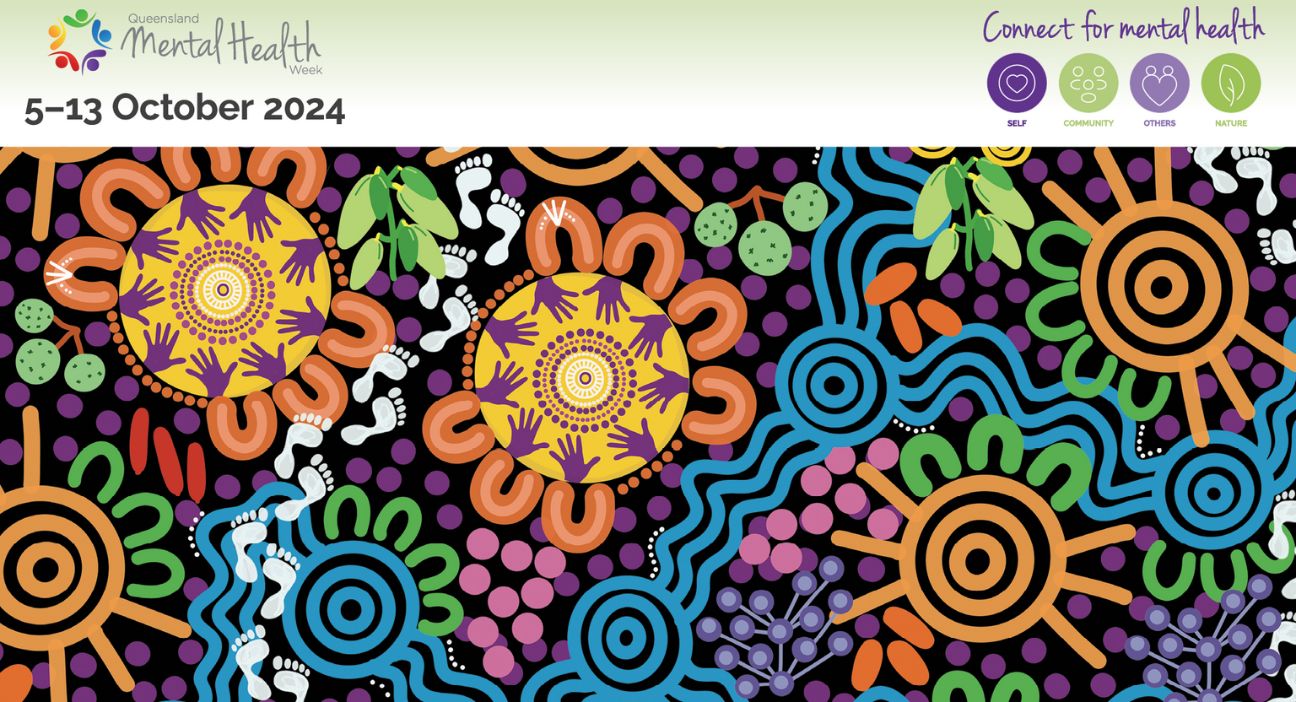
Central West residents are being urged to take the opportunity of this year’s Mental Health Week from 5–13 October to take stock of their mental health and look after others.
“Living and working in rural and remote communities can be stressful at times,’’ Central West Hospital and Health Service Executive Director of Medical Services Dr David Walker said.
Dr Walker said almost half of Australians were likely to be diagnosed with a mental illness in their lifetime.
“That means at least half the population knows someone living with or having experienced a mental health issue,’’ he said.
“However, mental health is something every person has – and it’s important to know that everyone’s mental health varies during their life and can move back and forth along their own personal range.’’
Dr Walker said Queensland Mental Health Week provided an opportunity to promote positive mental health and wellbeing to Central West communities and aimed to reduce the stigma associated with mental illness.
He said the 2024 Mental Health Week theme of “Connect for Mental Health” emphasised the proactive measures every Central West resident could adopt to nurture and support positive mental health and wellbeing for themselves and their communities.
Connect for Mental Health focuses on four areas:
- Connect with self: Take care of yourself, do something you enjoy, make healthy choices, and seek help when needed.
- Connect with community: Create supportive and inclusive environments, look after one another, and connect with culture. Show kindness and initiate connection with those who are struggling.
- Connect with others: Foster relationships with loved ones, friends, family, and mob. Spend time with others and make meaningful connections.
- Connect with nature: Take a break from technology, spend time outdoors, embrace mindfulness, and take care of the world around you.
Dr Walker said pressures such as social isolation, financial hardship, lack of employment opportunities, and natural disasters could have a major impact on a person’s mental health and wellbeing and their ability to connect with others.
“This can lead to anxiety, depression or other health related issues,’’ he said.
“But the phrase mental health can turn people off, so we really need to ensure the community are engaged and able to have conversations about it.
“Some groups experience much higher rates of mental health issues, including males, Aboriginal and Torres Strait Islander peoples and those living in rural and remote communities.
“Our emotional health is just as important as our physical health, so, it’s vital we strive to care for ourselves both mentally and physically.
“Staying connected is about finding services, support and social networks that foster mentally healthy practices.
“Our mental health service works with people on an ongoing basis to provide psychiatric treatment and support if they have a serious mental illness. They coordinate with psychiatrists to assist and or manage medications and other treatments.
“They will also refer people to other services for additional assistance with psycho-social issues as needed.’’
The Central West HHS will mark Mental Health Week with two events at Longreach and Barcaldine.
Longreach; 8 October – Mental Health Week stalls and activities in Eagle St, from 9 am to 12 noon.
Barcaldine: 12 October – Mental Health Week Quest event from 8 am to 12 noon at Crawchie Pot at the Barcaldine Showgrounds.
Dr Walker said the health service, through the Tackling Regional Adversity through Connected Communities (TRACC) program, also would be hosting mental health first aid training at Longreach on 5-6 December and at Blackall from 9-10 December.
Dr Walker said having positive mental wellbeing had many benefits, one of which was building long-term resilience and connections which could act as a buffer against the risk of mental illness.
A good start is to use the six building blocks of mental wellbeing, as detailed on the Queensland Government’s “Dear Mind” website:
- Get healthy: Be active, eat well and get enough sleep.
- Keep learning: Challenge your mind and seek out new things.
- Show kindness: Give back, show gratitude, and bring joy to others’ lives.
- Connect more: Develop relationships, stay connected and care for each other.
- Take notice: Be mindful. Stay in the moment. Experience the world around you.
- Embrace nature: Step outside, connect with the natural world and take care of the planet.
“Engaging with each of these building blocks can help build positive mental wellbeing and resilience, which is especially important around this time of year as we start counting down to the Christmas–New Year period,’’ Dr Walker said.
“While many of us look forward to the festive season, this time of year may be a source of stress, anxiety, sadness, or loneliness for some people, so it pays to start building mental health resilience earlier in the year.
“Remember, at any time of the year, if you’re feeling overwhelmed, lonely or anxious, reach out and talk to someone.
“You could reach out to a supportive relative or friend and connect by sending a text or message on social media, inviting someone over for a coffee or making a phone call.”
Some useful links and contacts:
- For mental health support 24/7 phone 1300 MH CALL (1300 64 2255).
- Dear Mind: https://mentalwellbeing.initiatives.qld.gov.au/
- Head to Health: Call 1800 595 212 or visit: https://www.headtohealth.gov.au/
- Lifeline on 13 11 14 or lifeline.org.au
- 13 YARN (13 92 76) or 13yarn.org.au
- Kids Help Line 1800 551 800 or kidshelpline.com.au
- QLife: 1800 184 527 or https://qlife.org.au/
- Beyond Blue 1300 22 46 36 or beyondblue.org.au
- Headspace: 1800 650 890 or headspace.org.au
- Mensline Australia on 1300 789 978
- Sane Helpline 1800 18SANE (7263) or at www.sane.org
- Suicide Callback Service on 1300 659 467
- Some valuable resources: https://www.qld.gov.au/health/mental-health/carers/index.html
- If you are concerned about your own or someone else’s alcohol or other drug use, call Alcohol and Drug Information Service (ADIS), a free, 24/7 anonymous and confidential telephone counselling and information service on 1800 177 833 or visit: https://adis.health.qld.gov.au/